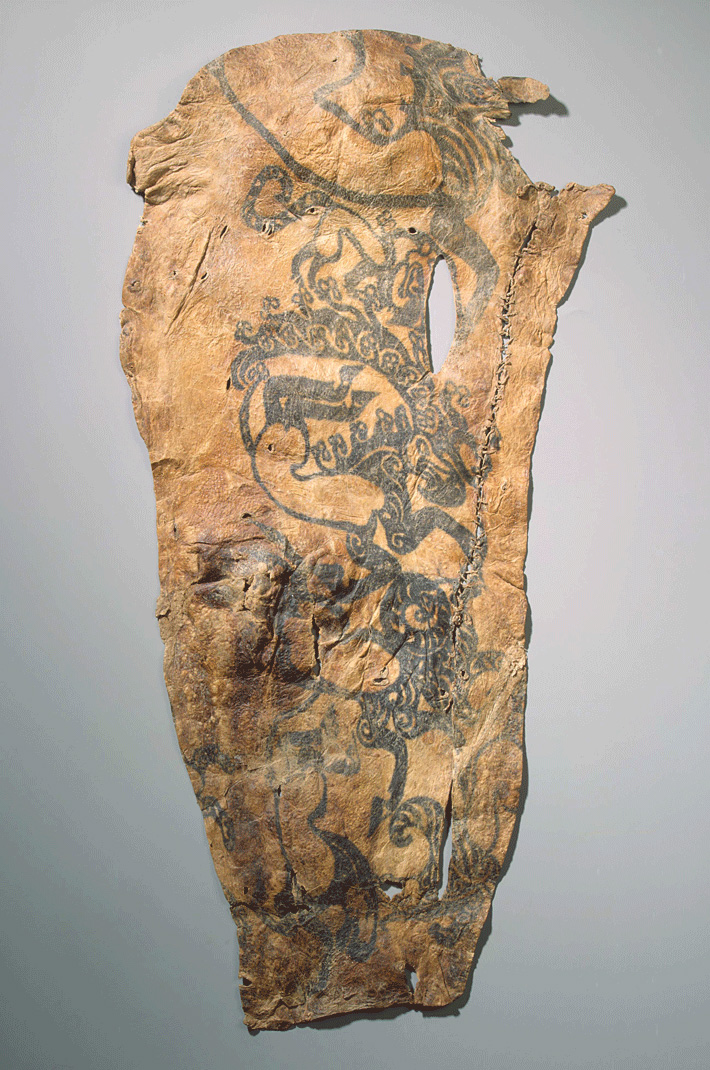
ST. PETERSBURG, RUSSIA—The Siberian Times reports that scientists at Russia’s State Hermitage Museum have taken a CT scan of a mummified head dated to between the third and fourth centuries A.D. Discovered in 1969 in a burial house made of larch logs in the Oglakhty burial ground, the masked mummy head belongs to the Tashtyk culture of Siberia’s Yenisei River Valley. “The computer scan allowed us to see, so to say, three layers—the layer of the mask, the layer of the face without the mask, and the layer of the skull,” said museum curator Svetlana Pankova. The scan revealed brown hair and a sutured wound beneath the gypsum death mask, which was painted red with black stripes. The scar, which travels from the left eye to the left ear, is thought to have been sewn after death, perhaps to repair a wound so that the mask would fit properly. Pankova said there is also a hole in the left side of the mummy’s skull, which is also thought to have been made after death in order to remove the brain and prepare the body for burial. “Expert analysis shows the hole was made by a series of blows with a chisel type or hammer type tool,” she explained. The scan also revealed the presence of tattoos on the body, the first to be found on a Tashtyk mummy. To read about tattoos adorning mummified members of the Pazyryk culture uncovered in Siberia, go to "Ancient Tattoos: Iron Age Mummy."
No comments:
Post a Comment